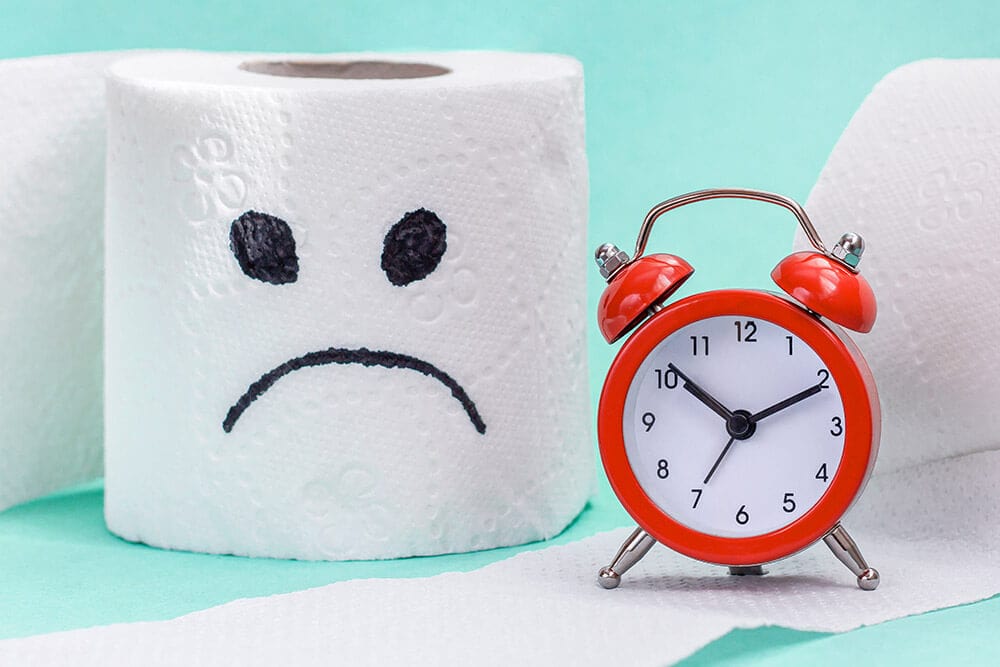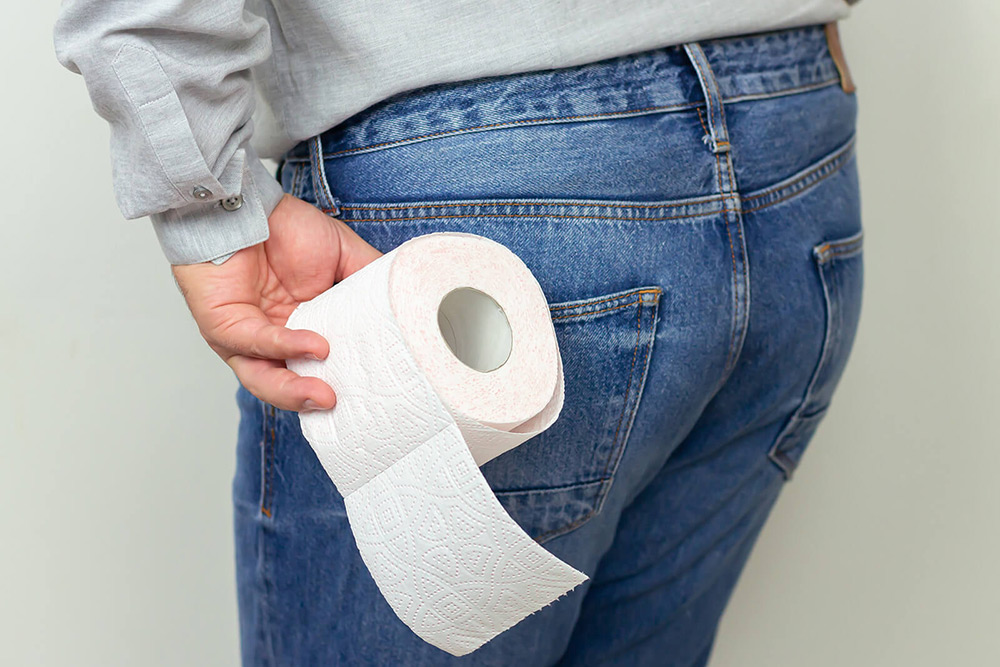What Is Constipation?
Constipation means you have fewer than three bowel movements per week. Stools are often hard, dry, or painful to pass, and you may feel bloated or like you still need to go. In Houston's warm weather, dehydration can make symptoms worse.
Common Causes and Risk Factors
- Low dietary fiber intake
- Inadequate fluid consumption
- Lack of regular physical activity
- Certain medications (e.g., painkillers, antidepressants)
- Ignoring the natural urge to have a bowel movement
- Hormonal changes during pregnancy
- Age over 65 years
- Underlying health issues (diabetes, hypothyroidism)
Signs and Symptoms
- Fewer than three bowel movements per week
- Straining or pain while passing stool
- Hard, dry, or lumpy stools
- Sensation of incomplete emptying
- Abdominal bloating or discomfort
- Lower back pain from excessive straining
- Nausea in severe or obstructive cases
How Dr. Rishi Diagnoses Constipation?
Dr. Rishi uses a step-by-step approach:
Medical History and Physical Exam
He reviews your diet, fluid intake, exercise habits, medications, and overall health history to identify potential triggers.
Blood Tests
We check thyroid function, electrolytes, and other lab values to rule out metabolic or hormonal causes of slow transit.
Imaging Studies
- Abdominal X-ray or CT scan to detect obstructions, stool burden, or structural abnormalities.
Endoscopic Evaluation
For patients over 50 or those with bleeding, a colonoscopy examines the colon lining for polyps, strictures, or other pathology.
Motility Testing
If constipation is persistent, specialized tests (anorectal manometry, balloon expulsion, or whole-gut transit studies) assess nerve and muscle function.
Frequently Asked Questions
What's a normal bowel movement frequency?
Anywhere from three times a day to three times a week is considered normal.
What foods should I avoid to prevent constipation?
Limit cheese, white bread, and large amounts of red meat, which can slow digestion.
Can constipation cause back pain?
Yes. Straining during bowel movements can lead to lower back discomfort or soreness.
Do bananas cause constipation?
Ripe bananas are high in fiber and usually help digestion. Unripe (green) bananas may slow bowel movements.
How much Miralax is safe for adults?
The typical adult dose is 17 grams (about one heaping tablespoon) once daily. Always follow your doctor's instructions.
Can constipation make me feel nauseous?
Yes. Severe or prolonged constipation can lead to nausea, bloating, or even vomiting in extreme cases.
When should I see a doctor about constipation?
See a provider if constipation lasts more than three weeks, or if you experience severe pain, unexplained weight loss, bleeding, or vomiting.
Are laxatives safe for long-term use?
Bulk-forming laxatives (e.g., psyllium) are safe for regular use. Avoid daily stimulant laxatives unless specifically directed by your physician.
Can stress cause constipation?
Yes. Stress and anxiety can alter gut motility and contribute to constipation.
How does not drinking enough water affect stool?
Insufficient fluids cause the colon to absorb more water from stool, making it hard, dry, and difficult to pass.











